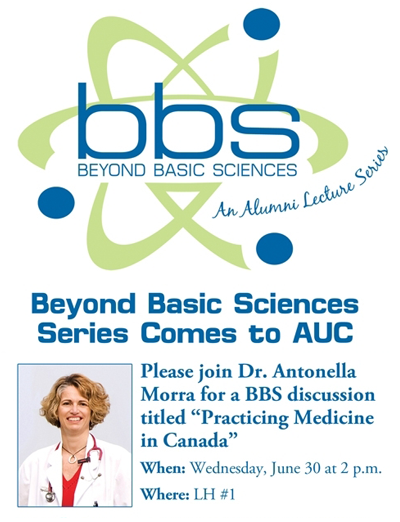Attrition
In September 2009, the largest class in AUC history set foot into the largest lecture hall in the school, a room of 300 seats. Lecture Hall 1 was the place that will be the place of instruction for the next three semesters for these 199 new students. I remember clearly on the first lecture of the first day of school, Molecular Cell Biology, every one of us showed up, eager to begin our new journeys in medicine and new lives as future doctors, and the lecture hall looked packed. How could anyone miss the first day of school?
A year later in September 2010, I look around my class. We no longer number the 199 we had before. By our third semester, we numbered 183. Today in our fourth semester, we are down to 175. The once-largest class in AUC history is now sitting in Lecture Hall 2, a smaller classroom of 200 seats. It makes me sad seeing more and more people that I have gotten to know and care for leave, some people who I thought could make it through to their dreams. Yet in a way, it is not a surprise. This is med school. The average attrition rate here is 13%, and looking around, the numbers make sense.
People are known to drop out of school during all semesters, but from my observations, it seems that most people who drop out do so either their first or third semester. People who drop out first semester tend to do so not because they failed too many classes, but because they choose to. It could be that they got accepted to their first choice school back in the states or Canada, or it could be that they could not get used to life in a foreign country. Some people may come to med school only to realize it wasn’t for them. Some people may have come to satisfy other people’s expectations, only to realize that they must be true to themselves and find another path that will make them happy. In a more unique case, one person I know of contracted Dengue fever the first week they were here and left for good. The reasons are many.
In contrast, people who drop out after third semester leave because they have to. According to the AUC student handbook, one will be academically dismissed for failing 17 credits or more (basically three classes), but may be dismissed for failing a class twice, after which the student can appeal and meet with a committee of five people — three faculty members, a student representative from the honor society, and a student representative from the judiciary committee — to present good reasons why they should remain at the school. The classes with the most number of people not passing per semester are MCB I (7 credits) in first semester, Physio I (5 credits) in second semester, and Med Micro (5 credits) in third semester. This adds up to 17 credits. If one fails all three of these classes, then one is out of the game, and this is why third semester is a common semester for people to drop out.
The attrition rate may be 13%, but knowing there is another 87% out there gives me hope that most of us who entered those doors of Lecture Hall 1 that special day a year ago will make it through med school. It would be premature for me to believe that as a fourth semester student, I am over the “hump” of Basic Sciences and that things will get better. Quite the opposite. Fourth semester is known to be even more challenging than third, and fifth more than fourth as we start crunching for the USMLEs. There will still be people who fail and have to repeat courses, like Pharm in fourth semester or Behavioral Science in fifth semester, both of which are also notoriously challenging courses. But despite possible subsequent failures, I believe that most of those who have made it this far, will succeed in the end.
Lessons learned:
1. Do not underestimate med school. I’ve known people who have done well their first block exams, and bragged about it, but still ended up failing a course by the end of the semester. Overconfidence can lead to failure.
2. Do not overestimate med school. I know a person who was failing anatomy in the beginning of first semester, but made changes for improvement, and ended up with a good grade by the end of the semester. He is now a TA in the anatomy lab, and quite a good one. Success is definitely doable.












